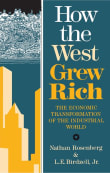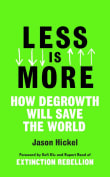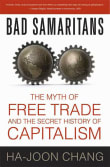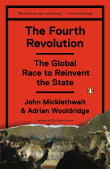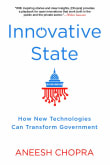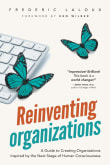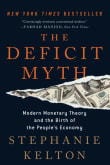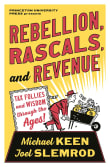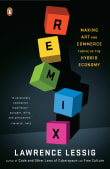The Entrepreneurial State
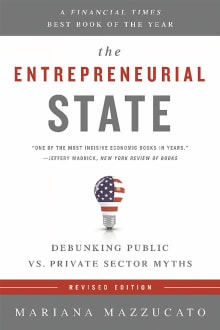
Book description
In this sharp and controversial expose, Mariana Mazzucato debunks the pervasive myth that the state is a laggard, bureaucratic apparatus at odds with a dynamic private sector. She reveals in detailed case studies, including a riveting chapter on the iPhone, that the opposite is true: the state is, and has…
Why read it?
8 authors picked The Entrepreneurial State as one of their favorite books. Why do they recommend it?

In a time when industrial policy is no longer taboo, even in the West, I would recommend this book to remember the pivotal role that state policies play in promoting development.
More than being the result of self-made people, crucial innovations like the smartphone result from the research backbone that the state provides.
The book is, therefore, thought-provoking as it debunks myths of state decline during the so-called neoliberal age, although recognises that private firms have acquired excessive power.
From Vinícius' list on understanding the transformation of capitalism and globalisation.

This is an important book that attacks head-on the mythology in American culture about the inherent superiority of the private sector over the public sector.
It documents the many public sector investments, inventions, and innovations that created many of the things that we all use in our daily lives. It shows how, despite decades-long attacks on government, we actually can point to a unique and valuable role that government action has played, and continues to play, in meeting public needs.
Mazzucato is one of the most important thinkers on this subject and has written a number of books that I’d…
From Donald's list on the battle between democracy and oligarchy.

Using many case studies different from ours, Mazzucato shows the private and public sectors as partners in the development of new technologies.
For example, in a fascinating case study of the iPhone, often thought to be a prime example of private enterprise, she shows that Steve Jobs’ genius was in combining into a new product many technologies recently developed by the public sector.
She argues that this iPhone case is typical of situations including the internet, biotech, and even shale gas “…in which the State plays the pivotal serious role of taking on the development of high-risk technologies, making the…
From Richard's list on how private and public sector enterprises.
If you love The Entrepreneurial State...

This book fills the gap on the place that the State plays in modern technological advances. It agrees with our subsequent research that the non-market sector plays a critical part in modern technological change. As the author says: “From the Internet to biotech and even shale gas, the US State had been the key diver of innovation-led-growth—willing to invest in the most uncertain phase of the innovation cycle and let business hop on for the easier ride down the way.”
From Richard's list on how technologies have transformed our societies.

Mazzucato points out that the great technological breakthroughs we enjoy in the 21st century were not, despite propaganda to that effect, the result of corporate R&D, but instead were underwritten by the US government and its various agencies. This means that the government takes enormous financial risks, such as developing the Internet, GPS, and other technologies, while corporate America enjoys the fruit of these risks by licensing patents owned by the government.
From Raphael's list on moving beyond capitalism.

We hear so much about how government and public sector are inefficient and risk-averse. In this book Mariana Mazzucato demonstrates that, actually, governments are often the source of innovations that are then exploited by the private sector. She illustrates this by showing that all the important technologies in an iPhone were invented and developed by governments.
Developing vaccines for COVID-19 is another example where governments and public money were needed to finance the innovation.
From Gary's list on how governments collect and spend your taxes.
If you love Mariana Mazzucato...

Mariana Mazzucato is a heterodox economist who writes about and advises global policymakers on innovation-driven inclusive growth. In this provocative book, she seeks to dispel the notion that governments are sluggish and inept, and that only the private sector can innovate. Through cases of companies like Apple and sectors like biotechnology she seeks to show that the state is, and has often been, our boldest and most valuable innovator. Moreover, believing that the state is inept results in a self-fulfilling prophecy. It leads governments to disinvest from innovation, which in turn results in them playing less of a role in…
From Jaideep's list on what modern governments can do for their citizens.

The market bias of neoclassical economics can be summed up by the mantra: private good, public bad. The state, we are told, is inefficient, wasteful, and uncreative, while the market is a paragon of efficiency and innovation, spurred on by the intense pressure of competition. This story, it turns out, is false, and no one has done more to demonstrate this than Mariana Mazzucato. Her work leaves us in no doubt that it is the public sector which takes the biggest risks investing in research and development, driving the most important technological breakthroughs across the economy.
From Raoul's list on critiquing free-market fundamentalism.
If you love The Entrepreneurial State...
Want books like The Entrepreneurial State?
Our community of 12,000+ authors has personally recommended 100 books like The Entrepreneurial State.





